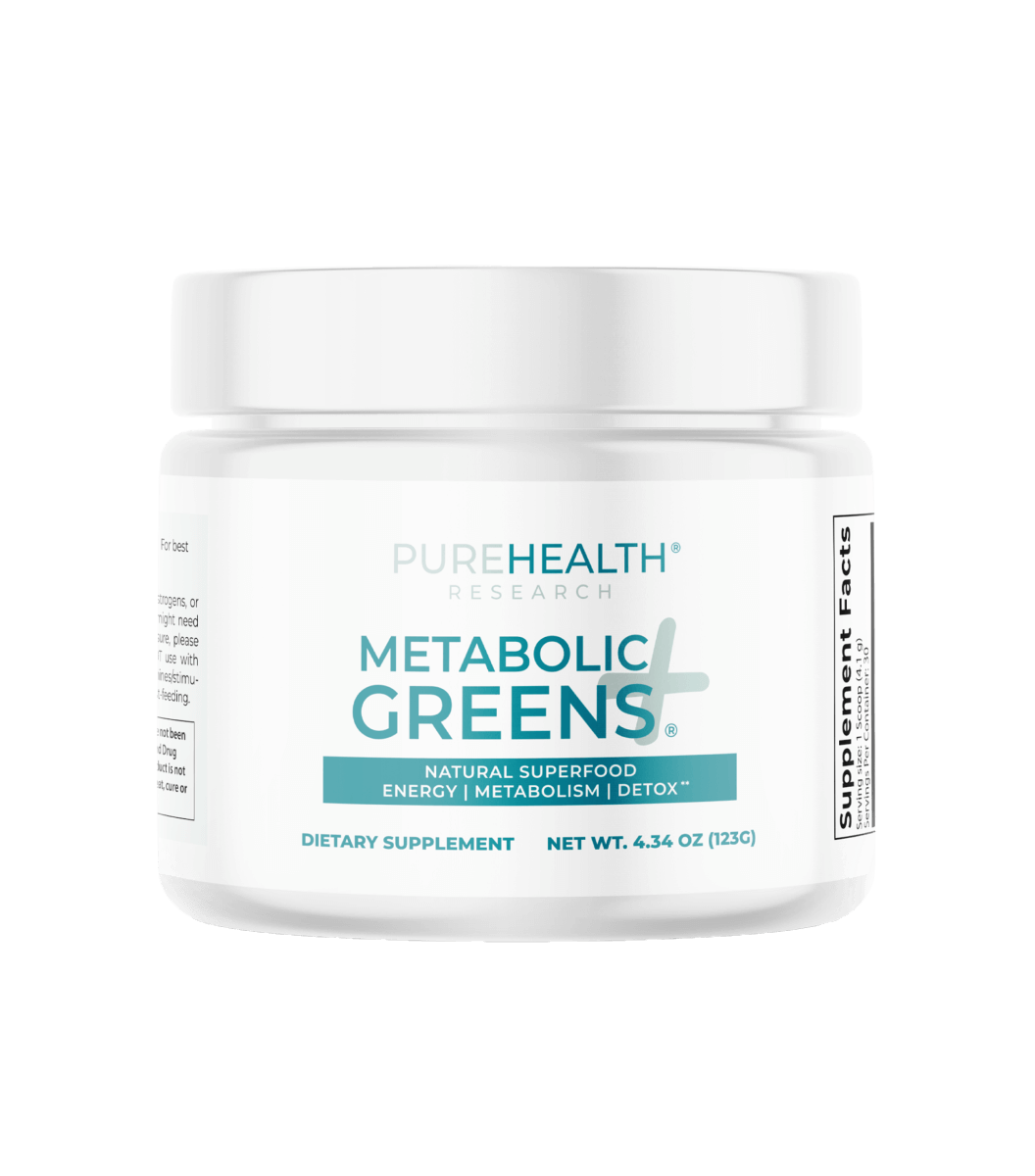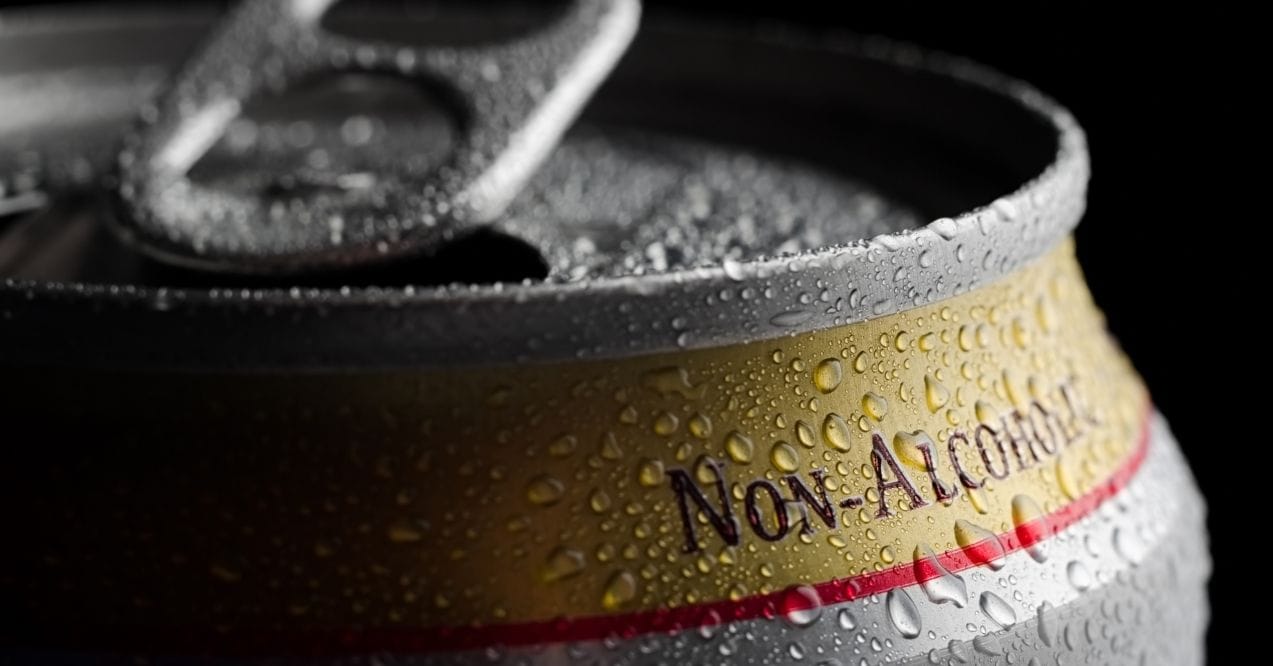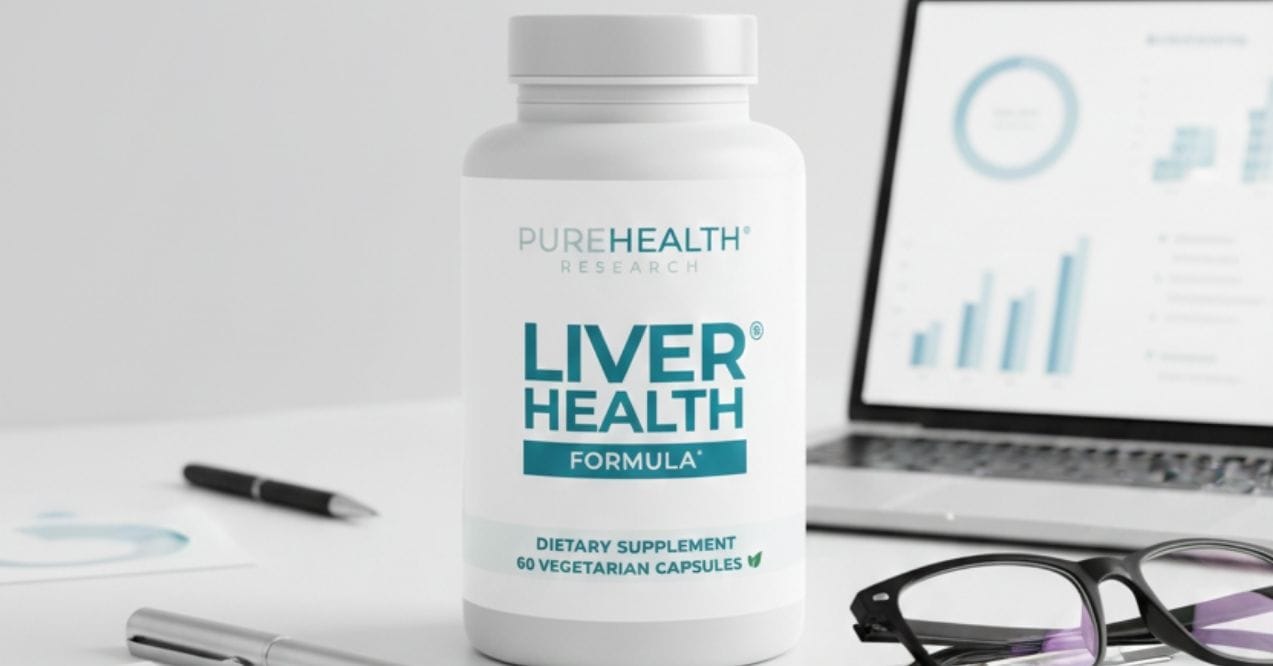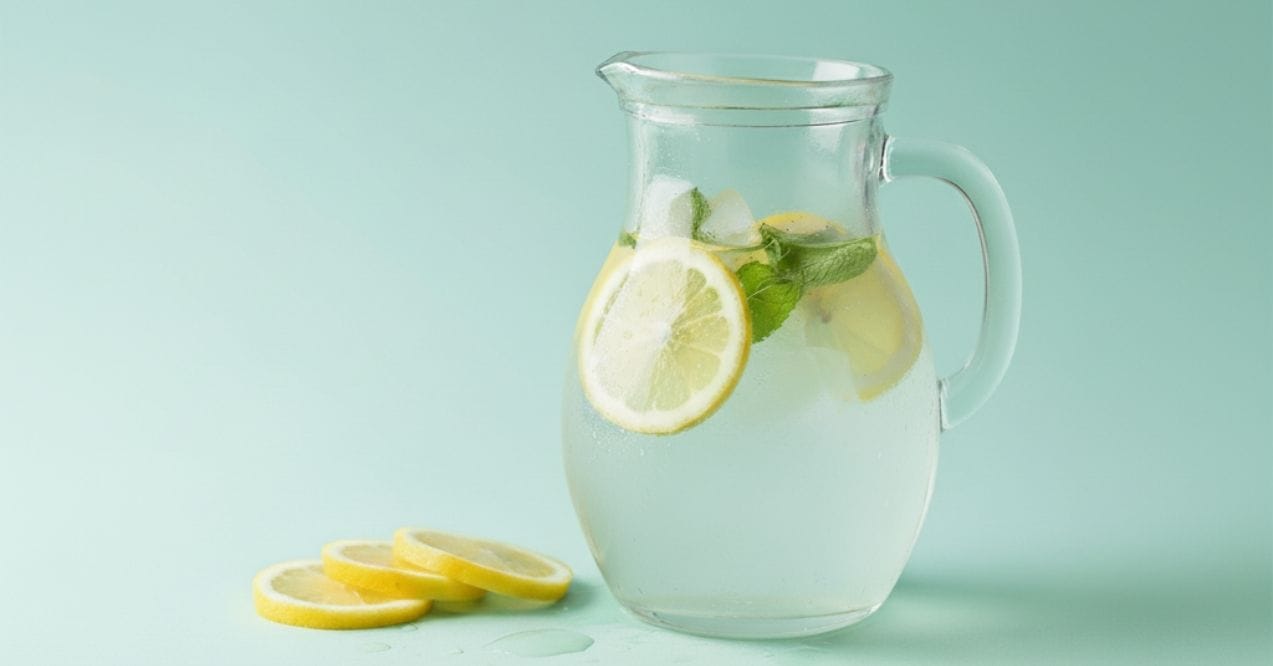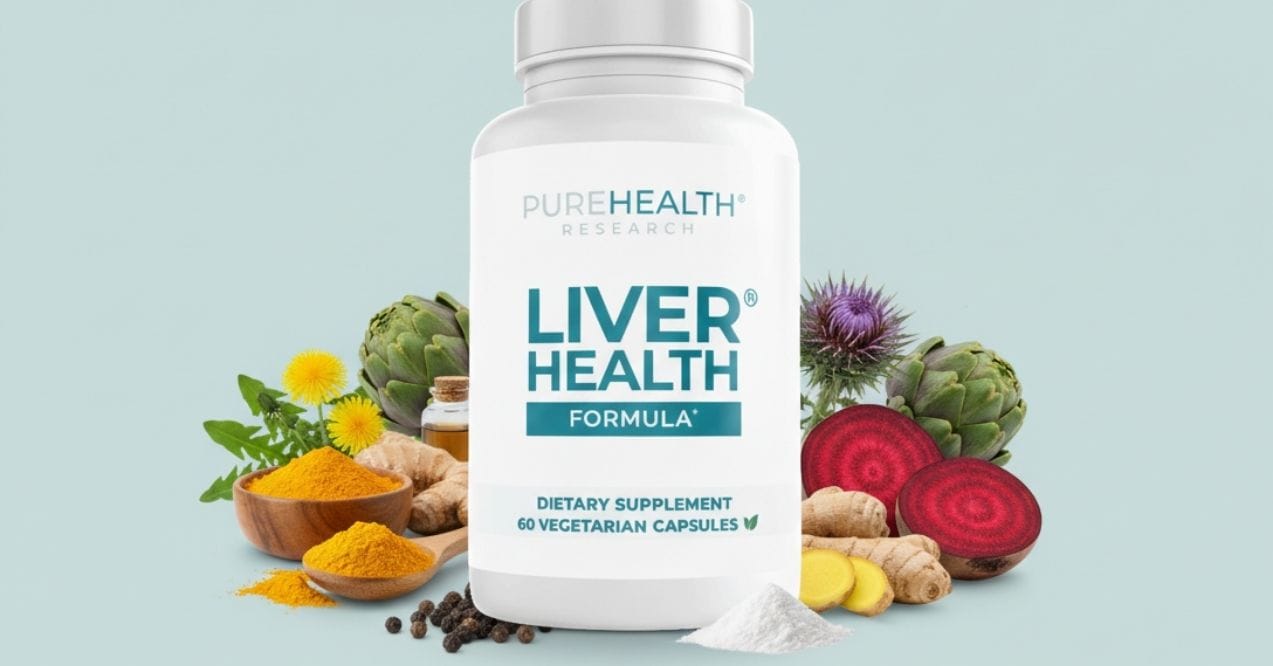What is The Connection Between Liver and Constipation?
Can liver issues cause constipation? Learn about the connection between liver and constipation and how to support your digestive system.
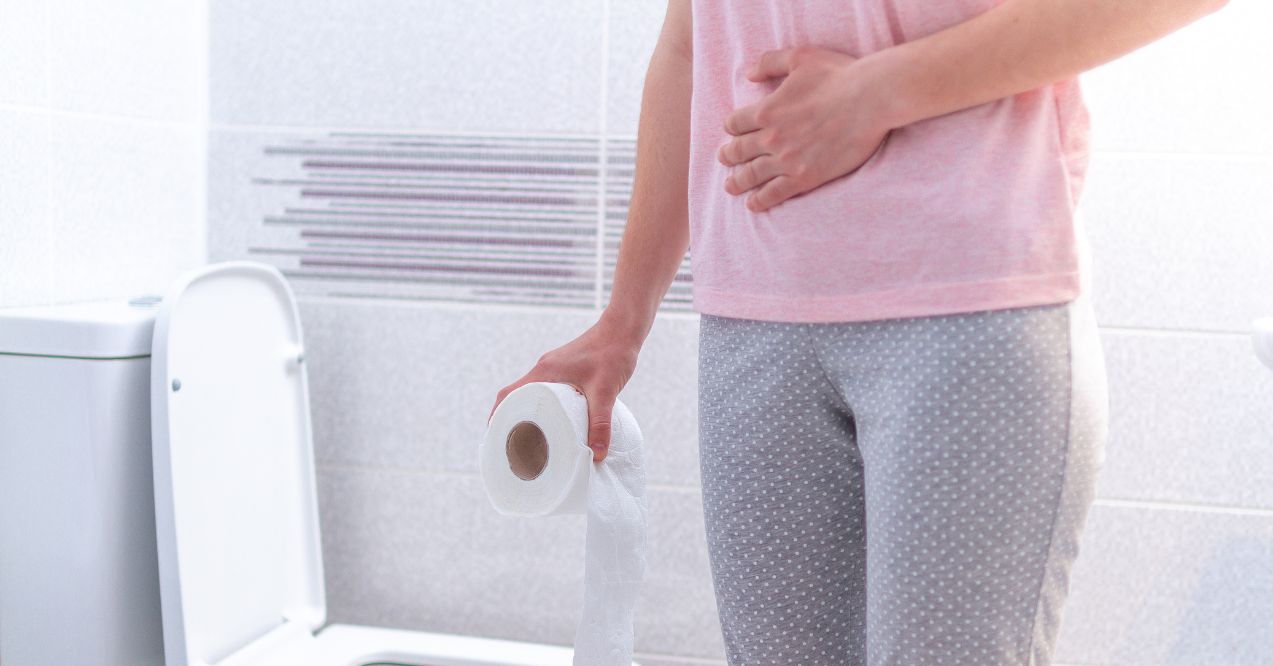

Are you curious about the connection between liver and constipation? You’re not alone. Many people wonder how these two aspects of digestive health might be related.
Let’s talk about constipation first. It’s a common issue that can really disrupt your daily routine. If you’re having infrequent or difficult bowel movements, you might be dealing with constipation.
While liver problems don’t directly cause constipation, they can impact your digestive system. This is why some people experience both issues simultaneously. The liver plays a crucial role in digestion, and when it’s not functioning optimally, it can contribute to various digestive problems, including constipation.
Understanding the potential link between liver and constipation can be an important step in managing your overall digestive health. If you’re experiencing persistent issues with it, it’s always a good idea to consult with a healthcare provider for personalized advice.
Diving Deeper Into Liver Problems and Constipation
Your liver is like your body’s chemical processing plant. It detoxifies your blood, produces bile for digestion, and stores essential nutrients. When it’s not functioning properly, it can impact your overall health, including your digestive system.
Constipation, on the other hand, isn’t just uncomfortable – it’s a real health concern. You might be constipated if you have fewer than three bowel movements per week or experience difficult, painful stools.
Both liver health and regular bowel movements are crucial for your well-being. A healthy liver ensures efficient toxin removal, while regular bowel movements help maintain a healthy digestive system. These issues are becoming more common due to factors like poor diet, lack of exercise, and high stress levels.
How Are Liver and Constipation Problems Linked?
While liver problems don’t directly cause constipation, they’re more closely connected than you might think. Here’s why:
- The Gut-Liver Axis – Your liver and gut are in constant communication. When one’s off, the other can feel it. A 2022 study by Pezzino et al. found that serious liver problems can disrupt the gut microbiome, potentially leading to digestive issues like constipation.
- Bile Production – Your liver produces bile, which is essential for digestion. When liver function is compromised, it may not produce enough bile, potentially slowing down digestion and contributing to constipation.
- Toxin Buildup – If your liver’s struggling, toxins can accumulate in your body, potentially slowing down your digestive process.
- Shared Risk Factors – Many lifestyle factors that contribute to liver problems can also lead to constipation. These include:
- A diet high in fats and low in fiber
- Lack of exercise
- Excessive alcohol consumption
- High stress levels
While liver problems and constipation might not have a direct cause-and-effect relationship, they can create a cycle that impacts your overall health. Poor liver function can lead to digestive issues, including constipation. Conversely, chronic constipation can increase pressure on the liver, potentially worsening existing liver problems.
Are Your Liver or Bowels Trying to Tell You Something?
As we age, it becomes increasingly important to pay attention to our body’s signals. Liver problems and constipation are two health issues that can significantly impact our well-being. Here’s what you should know:
Signs of Liver Problems
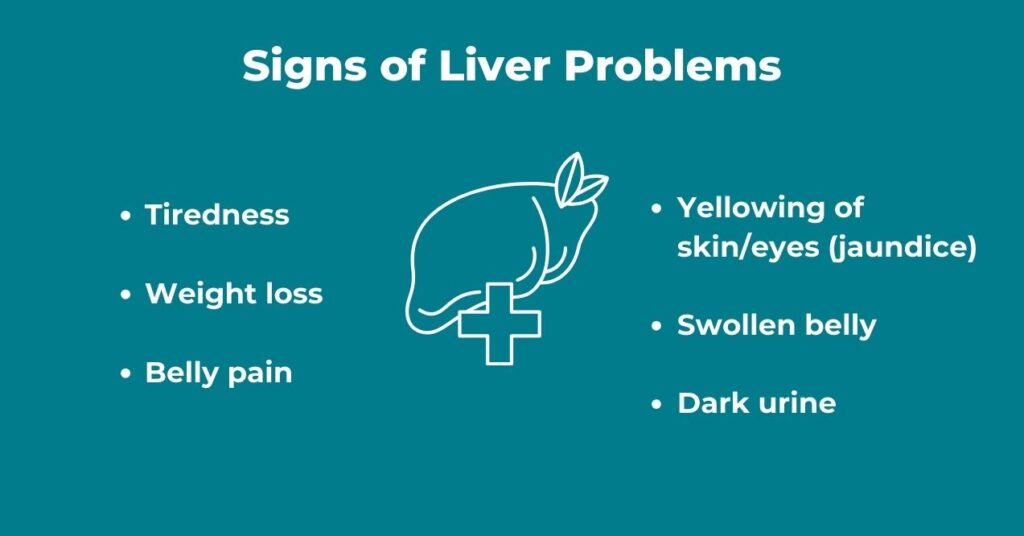
If your liver is under stress, you may experience signs:
- Tiredness
- Weight loss
- Belly pain
- Yellowing of skin/eyes (jaundice)
- Swollen belly
- Dark urine
Indicators of Constipation
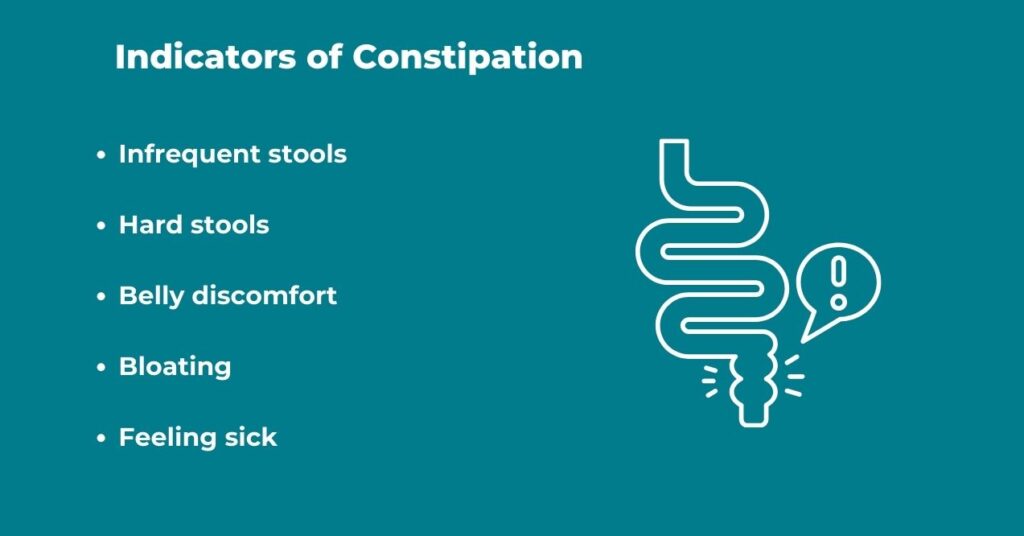
Constipation can be more than just an inconvenience. Watch for:
- Infrequent stools
- Hard stools
- Belly discomfort
- Bloating
- Feeling sick
Overlapping Symptoms
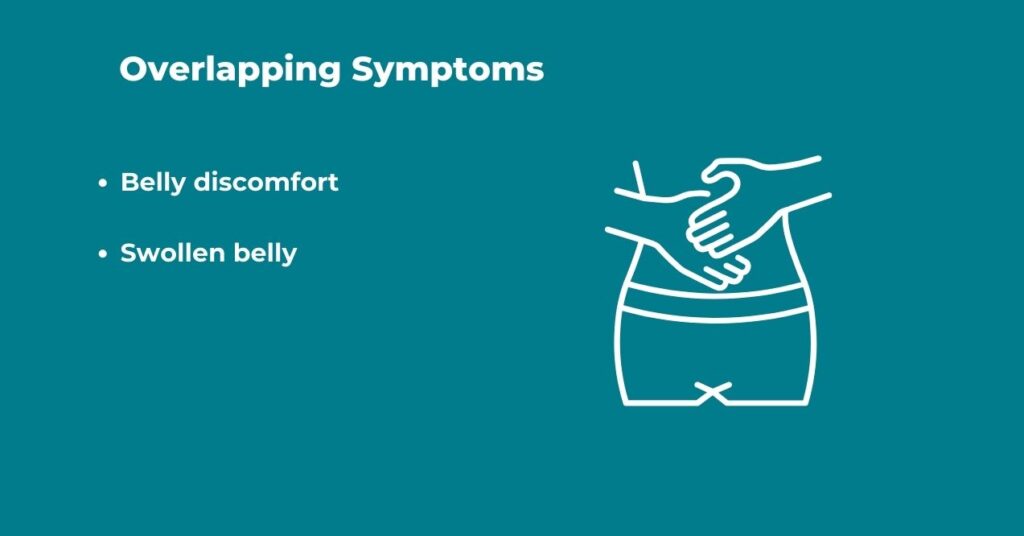
Sometimes, liver issues and constipation can share symptoms:
- Belly discomfort
- Swollen belly
It’s important to note that these symptoms can also be associated with other health conditions common in adults over 50. If you’re experiencing any of these symptoms, especially if they persist, it’s advisable to consult with your healthcare provider. They can help determine the cause and recommend appropriate treatment.
What Causes Constipation?
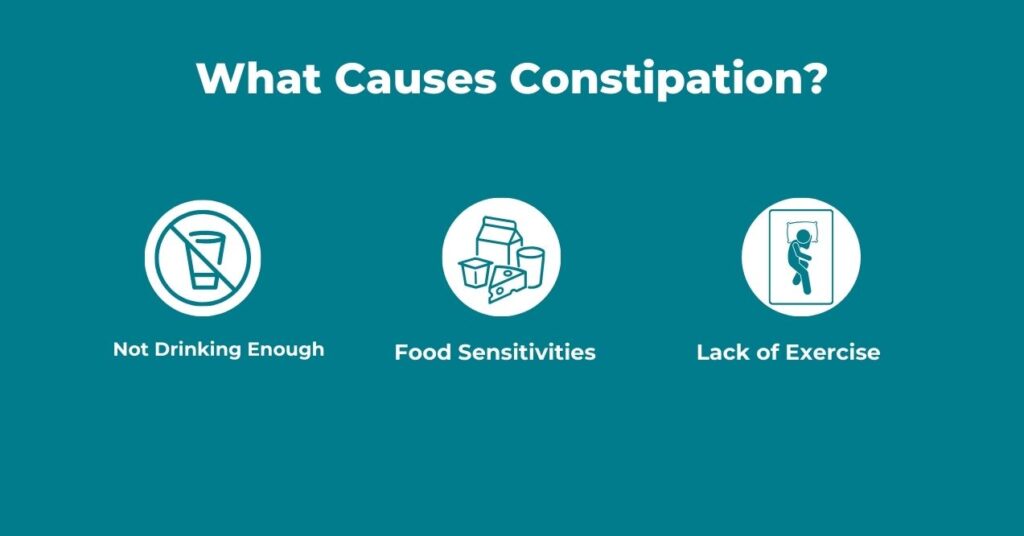
Liver and constipation issues are often interrelated, as lifestyle choices impacting one can also affect the other. Below are some of the primary causes of constipation.
Not Drinking Enough
Dehydration can lead to hard, dry stools that are difficult to pass. When the body lacks sufficient water, it absorbs more liquid from the waste in the colon, making stools harder and more challenging to move through the digestive tract.
Lack of Exercise
Physical activity helps stimulate the muscles in the intestines, promoting regular bowel movements. A sedentary lifestyle can slow down the digestive system, leading to infrequent and difficult bowel movements.
Food Sensitivities
Certain foods can irritate the digestive system and lead to constipation. For example, dairy, gluten, and highly processed foods can disrupt digestion in some individuals, making it harder for them to maintain regular bowel movements. Recognizing and avoiding these trigger foods can help alleviate constipation symptoms.
Dealing with Constipation
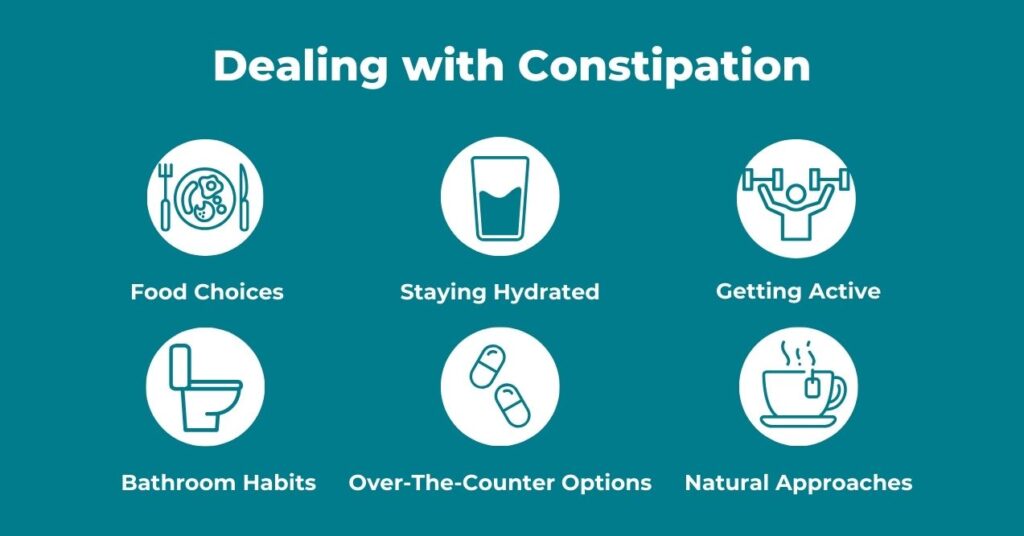
Addressing constipation effectively requires a multifaceted approach. Making the right dietary and lifestyle changes can significantly improve digestive health and alleviate constipation. Understanding how to support your gut and maintain regular bowel movements is essential for overall well-being. Below are practical strategies to deal with constipation.
Food Choices
Increasing your intake of fiber is crucial for softening stools and promoting regular bowel movements. Foods rich in fiber include fruits, vegetables, and whole grains. Incorporating these into your diet can help ease constipation and support digestive health.
Staying Hydrated
Drinking plenty of water is essential for preventing hard stools. Adequate hydration keeps stools soft and helps them move smoothly through the digestive tract. Aim for at least 8 glasses of water a day to maintain proper hydration.
Getting Active
Regular exercise stimulates intestinal muscles and promotes bowel movements. Activities that help with bowel movements and constipation include:
- Walking
- Jogging
- Yoga
- Cycling
- Swimming
Bathroom Habits
Establishing regular bathroom habits can significantly help with constipation. Try to go to the bathroom at the same time each day, ideally after meals when your digestive system is active. Creating a comfortable environment and not rushing the process can also improve bowel regularity.
Over-The-Counter Options
Laxatives and stool softeners can provide temporary relief from constipation. However, they should be used with caution and not relied upon long-term, as they can lead to dependency and other health issues.
Natural Approaches
Gentler approaches such as herbal teas, probiotics, and other natural remedies can support digestive health. For example, drinking the best tea for gut health can alleviate constipation and promote a healthy gut. Probiotics help balance the gut microbiome, improving digestion and regularity.
Metabolic Greens+ from PureHealth Research, endorsed by integrative medicine expert Dr. Holly Lucille, ND, RN, may also offer comprehensive support for digestive health. This supplement contains high-quality, natural ingredients like Spirulina Algae, Broccoli, Organic Barley Grass, Organic Wheat Grass, Organic Alfalfa Leaf, and Green Tea Leaf Extract. These ingredients help balance your digestion and provide vital nutrients that are often hard to get from food alone.
By incorporating these natural, high-quality ingredients, Metabolic Greens+ aims to support your body’s metabolism, boost energy levels, and improve overall health. Nevertheless, it’s important to note that supplements work best as part of a comprehensive health approach, including a balanced diet rich in nutrients and regular exercise.
If you’re interested in exploring more products designed to support liver health, we offer a range of options tailored to complement your wellness goals. These products are crafted with natural, high-quality ingredients to promote liver function and overall vitality. Click here to check out our full collection of liver health supplements and find the perfect addition to your routine.
Key Takeaways
In conclusion, understanding the connection between liver health and constipation is crucial for maintaining overall well-being, especially as we age.
Remember, a healthy liver supports proper digestion and regular bowel movements. By staying hydrated, eating a fiber-rich diet, and engaging in gentle exercise, you can support both your liver and digestive health. While natural remedies like herbal teas and probiotics may offer some relief, it’s important to use laxatives and stool softeners cautiously.
If you’re experiencing persistent issues, don’t hesitate to reach out to your healthcare provider. They can offer personalized advice tailored to your unique health needs. Taking care of your liver and digestive system today can lead to better health and comfort tomorrow.
Liver problems can indirectly cause constipation by disrupting detoxification and digestion processes. While not a direct cause, impaired liver function can contribute to digestive issues, potentially leading to constipation. Maintaining liver health supports better digestive function.
Constipation can result from issues with the colon, liver, or thyroid. A slow-moving colon or intestinal blockages can disrupt bowel movements. Liver dysfunction may reduce bile production, affecting digestion. An underactive thyroid can also slow metabolism and digestion, leading to constipation.
Yes, a sluggish liver can contribute to constipation. The liver produces bile, which helps digestion and keeps bowel movements regular. When bile production decreases, stools can become harder, slowing digestion. A poorly functioning liver may also affect waste elimination, making constipation more likely.
Sign up for our Healthy Living newsletter!
Advertisement. This site offers health, wellness, fitness and nutritional information and is designed for educational purposes only. You should not rely on this information as a substitute for, nor does it replace, professional medical advice, diagnosis, or treatment. If you have any concerns or questions about your health, you should always consult with a physician or other health-care professional. Do not disregard, avoid or delay obtaining medical or health related advice from your health-care professional because of something you may have read on this site. The use of any information provided on this site is solely at your own risk.
